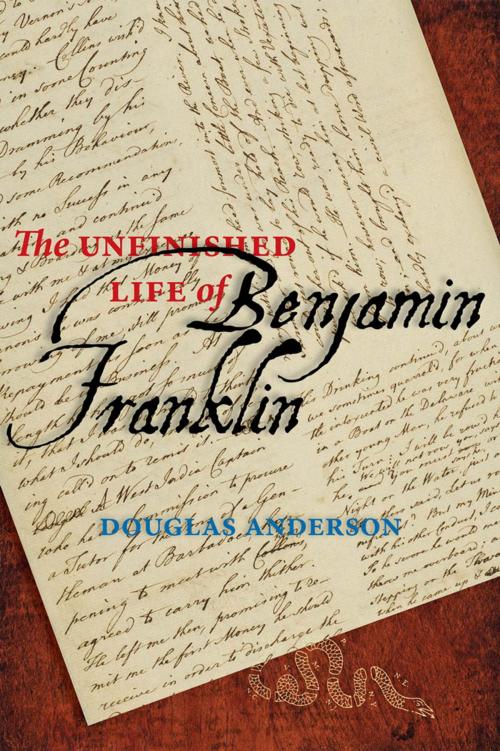The Unfinished Life of Benjamin Franklin
Fiction & Literature, Literary Theory & Criticism, American, Nonfiction, History, Americas, United States| Author: | Douglas Anderson | ISBN: | 9781421406138 |
| Publisher: | Johns Hopkins University Press | Publication: | June 1, 2012 |
| Imprint: | Language: | English |
| Author: | Douglas Anderson |
| ISBN: | 9781421406138 |
| Publisher: | Johns Hopkins University Press |
| Publication: | June 1, 2012 |
| Imprint: | |
| Language: | English |
Benjamin Franklin wrote his posthumously published memoir—a model of the genre—in several pieces and in different temporal and physical places. Douglas Anderson’s study of this work reveals the famed inventor as a literary adept whose approach to autobiographical narrative was as innovative and radical as the inventions and political thought for which he is renowned.
Franklin never completed his autobiography, choosing instead to immerse his reader in the formal and textual atmosphere of a deliberately "unfinished" life. Taking this decision on Franklin’s part as a starting point, Anderson treats the memoir as a subtle and rewarding reading lesson, independent of the famous life that it dramatizes but closely linked to the work of predecessors and successors like John Bunyan and Alexis de Tocqueville, whose books help illuminate Franklin’s complex imagination. Anderson shows that Franklin’s incomplete story exploits the disorderly and disruptive state of a lived life, as opposed to striving for the meticulous finish of standard memoirs, biographies, and histories.
In presenting Franklin’s autobiography as an exemplary formal experiment in an era that its author once called the Age of Experiments, The Unfinished Life of Benjamin Franklin veers away from the familiar practices of traditional biographers, viewing history through the lens of literary imagination rather than the other way around. Anderson’s carefully considered work makes a persuasive case for revisiting this celebrated book with a keener appreciation for the subtlety and beauty of Franklin’s performance.
Benjamin Franklin wrote his posthumously published memoir—a model of the genre—in several pieces and in different temporal and physical places. Douglas Anderson’s study of this work reveals the famed inventor as a literary adept whose approach to autobiographical narrative was as innovative and radical as the inventions and political thought for which he is renowned.
Franklin never completed his autobiography, choosing instead to immerse his reader in the formal and textual atmosphere of a deliberately "unfinished" life. Taking this decision on Franklin’s part as a starting point, Anderson treats the memoir as a subtle and rewarding reading lesson, independent of the famous life that it dramatizes but closely linked to the work of predecessors and successors like John Bunyan and Alexis de Tocqueville, whose books help illuminate Franklin’s complex imagination. Anderson shows that Franklin’s incomplete story exploits the disorderly and disruptive state of a lived life, as opposed to striving for the meticulous finish of standard memoirs, biographies, and histories.
In presenting Franklin’s autobiography as an exemplary formal experiment in an era that its author once called the Age of Experiments, The Unfinished Life of Benjamin Franklin veers away from the familiar practices of traditional biographers, viewing history through the lens of literary imagination rather than the other way around. Anderson’s carefully considered work makes a persuasive case for revisiting this celebrated book with a keener appreciation for the subtlety and beauty of Franklin’s performance.















